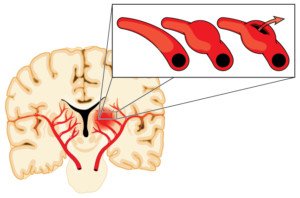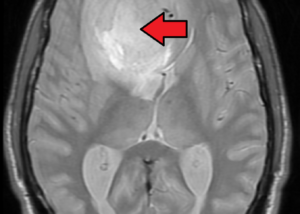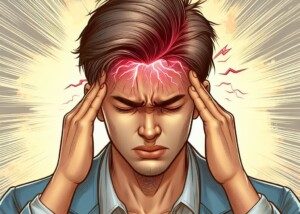
OW! Did you just get another one of those sudden sharp stabbing pains in a specific area of your head?
Was it enough to make you stop whatever it was you were doing?
Does this sudden sharp head pain make you then worry if it might be a brain tumor or a rupturing blood vessel?
“Usually it’s a nerve being “twinged” by a certain movement or spasm of an overlying muscle,” says Carolyn Dean, MD, ND – Medical Advisory Board Member, Nutritional Magnesium Association at nutritionalmagnesium.org.
If you keep suffering from recurring episodes of this problem, Dr. Dean recommends taking a magnesium supplement as follows:
“Magnesium citrate powder in water, sipped throughout the day is the best way of taking magnesium.”
How is a sudden sharp pain in the head caused by inadequate magnesium?
“Magnesium deficiency leads to blood vessels and muscles that are less relaxed and more susceptible to spasm and tension,” says Dr. Dean.
“Magnesium assists over 700 enzyme actions including the production and transport of energy, temperature regulation and the synthesis of protein, while it also relaxes muscles.”
So if those sudden sharp pains or dings in your head are related to tense muscles that are in spasm, supplementation with magnesium may very well solve this problem.
“The depletion of magnesium from our soils due to modern farming methods and food processing has made it difficult to get enough magnesium from diet alone, making supplementation a necessity,” explains Dr. Dean. “Not all forms of magnesium are easily absorbed.”
This is why she recommends the powder form.
More Data on Sudden Sharp Head Pain
There is no research that shows without a doubt what the most common cause of sudden sharp dings of pain in the head are, but this is a fairly common problem.
This is not to be confused with the so-called thunderclap headache which comes on like a switch being flipped; patients have described it as the worst possible headache imaginable—and it does not go away—it persists.
However, the “ding” that I speak of is temporary—lasting less than a second to only seconds.
A thunderclap headache can be caused by a ruptured blood vessel, and that pain isn’t going anywhere after a few seconds, either.

Schematic of a rupturing brain blood vessel. Shutterstock/Blamb
The momentary head ding is also known as an ice-pick headache.
The pain can range from what can be described as sharp, to stabbing, to being stabbed with an icepick.
A classic icepick headache has no known cause.
Other Causes of Sudden Sharp Head Pain – Lasting Only Seconds and Without Overt Movement Triggers
Pinched nerve in the neck (though this can cause pain lasting for minutes or on and off throughout the day)
Trigeminal nerve irritation or neuralgia — this usually causes sudden sharp pain in the cheek, but in rare cases it could surface in the forehead. The trigeminal nerve starts in the nasal passage.
Occipital neuralgia — the occipital nerve is irritated; pain is behind the eye
Remember, the focus of this article is on a sudden, with no known provocation, sharp pain in a localized area of the head that lasts what seems like a microsecond to several seconds—we’re not talking about a headache here.
As Dr. Dean mentioned, the most common or likely cause in an otherwise healthy person is a random “twinging” of a nerve caused by a muscle spasm.

Dr. Dean, in practice for 35+ years and author of “The Magnesium Miracle,” is also a naturopath, nutritionist, herbalist, acupuncturist, lecturer and consultant.
 Lorra Garrick has been covering medical, fitness and cybersecurity topics for many years, having written thousands of articles for print magazines and websites, including as a ghostwriter. She’s also a former ACE-certified personal trainer.
Lorra Garrick has been covering medical, fitness and cybersecurity topics for many years, having written thousands of articles for print magazines and websites, including as a ghostwriter. She’s also a former ACE-certified personal trainer.
Top image: Shutterstock/Mykola Samoilenko
Brain Tumor Can Cause Smelling Something Bad that’s Not There
Can a Brain Tumor Cause Twitching Muscles and Fasciculations?
Are Jerking Limbs Before Falling Asleep a Brain Tumor Sign ?
Is Your Headache from TMJ or Brain Tumor? Misdiagnosis Possible









































